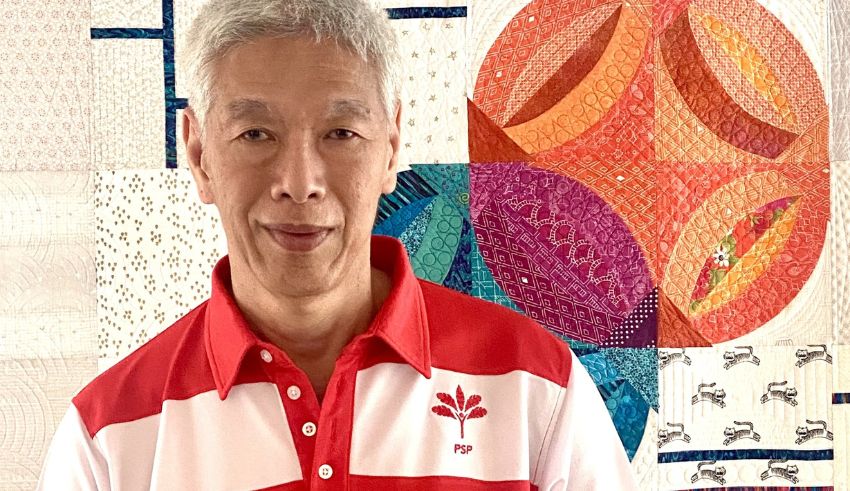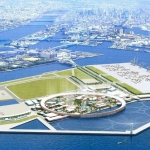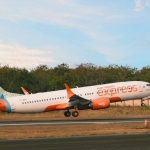
Younger brother of Singapore’s present Prime Minister Lee Hsien Yang made headlines on Tuesday, October 22 with public declaration that he is now a political refugee in the United Kingdom. Mr. Lee said that his asylum application was a “last resort” and that he left Singapore due to what he described to be continuous “attacks” from the authorities. His selection brilliantly illustrates the increasing political and family split inside one of Singapore’s most influential families, which has captivated the nation since 2017.
“I remain a Singapore citizen and hope that someday it will become safe to return home,” Lee Hsien Yang stated in a Facebook post expressing his continual wish to go back to his nation.
Government’s response: Denial of claimed persecution
Especially from The Guardian, the government of Singapore responded quickly to media inquiries about Mr. Lee’s asylum status. Emphasizing that charges of a campaign of persecution lacked “basis,” the administration responded in a statement rejecting Lee Hsien Yang’s claims. It also noted that the court of Singapore is objective and operates on its own, therefore highlighting the lack of legal barriers preventing Mr. Lee and his wife, Lee Suet Fern, from visiting Singapore.
The government answered, “They are and have always been free to return to Singapore,” therefore denying any political repression or threat directed at the two.
The family tensions and Oxley Road conflict
The Lee family’s quarrel largely results from a protracted court and political battle over the fate of Lee Kuan Yew, the first prime minister of Singapore’s former residence, 38 Oxley Road. Following the objectives of their father, Lee Hsien Yang and his late sister, Dr. Lee Wei Ling, had openly supported the house’s demolition. However, the issue has become a flashpoint of discussion when Lee Hsien Yang and his sister assert they were intimidated attempting to fulfill their father’s last wishes.
This dispute became public in 2017 when both siblings accused their older brother, Prime Minister Lee Hsien Loong, of exploiting his authority to forward his own agenda over the family assets. These disputes throw doubt on the intersection of political and personal power in Singapore and muddy the carefully controlled political landscape of the country by attracting outside attention.
Legal Battles: False Evidence to Contempt of Court
After looking at claims of falsified evidence presented in court procedures related to their father’s will, Mr. Lee chose to leave Singapore with his wife, Mrs. Lee Suet Fern. Though first willing to assist with the investigation, the duo eventually fled Singapore in 2022 and skipped scheduled police interviews. The pair stays abroad while the Singaporean government says there are no legal barriers preventing their return.
Legal concerns also recently surfaced for Lee Hsien Yang’s family. 2020 saw Li Shengwu, his son, found guilty of contempt of court in what the family and supporters claim to be evidence of Singapore’s rigorous legal procedures being enforced to silence resistance. Mrs. Lee Suet Fern also experienced professional disciplinary action; her participation in the last will drafting for Lee Kuan Yew resulted in a 15-month legal ban. Including Singapore’s Chief Justice, the Court of Three Judges condemned her actions, citing her of executing the will with “unseemly haste” and overlooking possible conflicts of interest.
Keep Reading
Singapore’s stance on world stage: government defense
Responding to inquiries by The Guardian, the Singaporean government vehemently defended its court system and reputation. It underlined Singapore’s good global ratings in terms of legal transparency and anti-corruption policies, therefore negating claims made by human rights organizations that the country uses a “pliant legal system to intimidate critics”.
Third on the Rule of Law Index of the World Justice Project and fifth in the Transparency International Corruption Perceptions Index; Singapore’s government said that its institutions are largely respected. By contrast, the UK, where Mr. Lee currently lives, performed significantly worse on both indices. Emphasizing that “no one is above the law” in Singapore, even the offspring of Lee Kuan Yew, the government underlined once more that legal actions against Lee Hsien Yang and his family commenced depending on credible evidence and independent court rulings.
The government also disputed allegations that a small group of elites—including members of the governing People’s Action Party (PAP)—had profited disproportionately from Singapore’s economic growth. It underlined the nation’s robust social safety net, pointing out that nine in ten patients spend less than S$500 for public hospital stays and ninety percent of public school costs are subsidized.
Consequences for Singapore from a complex family legacy
The ongoing strife inside the Lee family raises crucial questions about government in Singapore, political power, and personal influence. As the family of the founding leader of Singapore, Lee Kuan Yew’s public confrontations among the Lee siblings have sparked debates on openness, justice, and the situation of democracy in the country.
Lee Hsien Yang’s asylum status adds to the discussion since it draws attention from around the world about whether Singapore, known for its disciplined political system, is showing indications of fundamental weakness. His decision to flee into the UK emphasizes how complicated political life is in Singapore, where legal processes and personal ties often entwine in difficult to separate ways.
Lee Hsien Yang is still abroad, therefore the question of whether he will ever feel safe enough to return to Singapore or if the separation among Singapore’s most well-known family will always widen and affect the political scene of the country.






















